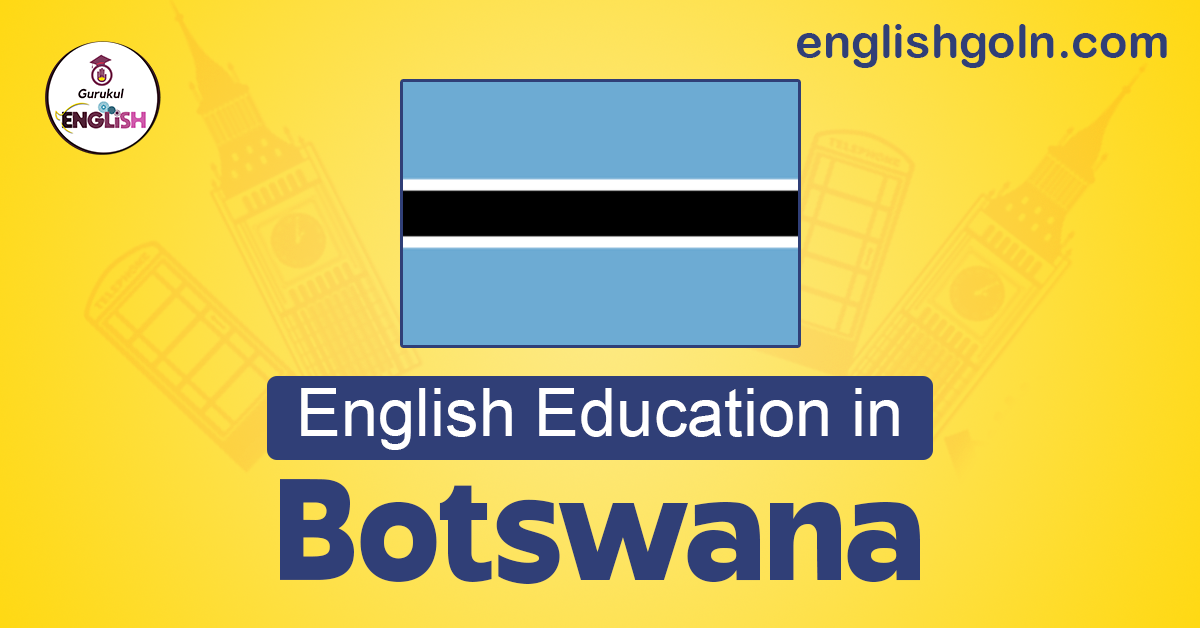English education in Botswana plays a pivotal role in the country’s development and international communication. As a former British colony, English became the official language upon independence in 1966. Since then, it has become the medium of instruction in schools and the dominant language in various aspects of national life. This article explores the history, current state, and challenges of English education in Botswana, highlighting its significance in shaping the nation’s future.
English Education in Botswana

Historical Context: The Emergence of English
Botswana’s linguistic landscape is diverse, with numerous languages spoken across the country. Setswana, a Bantu language, serves as the national language and mother tongue for a significant portion of the population. However, English, inherited from colonial rule, has become the language of instruction, government, and commerce.
During colonial times, English was introduced as the medium of education to prepare the local population for administrative roles in the British administration. Although the colonial legacy of English remains, Botswana has embraced its status as a multilingual nation, recognizing the importance of preserving indigenous languages while empowering its citizens through English education.
The Role of English in Education
English education in Botswana is a critical aspect of the country’s educational system. It serves as the language of instruction in schools, beginning at the primary level and continuing through higher education. English proficiency is essential for academic success and future career opportunities.
- Primary Education: English is introduced early in primary schools, often as the language of instruction for mathematics, science, and social studies. This early exposure lays the foundation for language development and prepares students for more advanced subjects taught in English later in their academic journey.
- Secondary Education: In secondary schools, English is the primary language of instruction for almost all subjects. A strong command of English becomes crucial for students to excel in their studies and succeed in national examinations.
- Higher Education: At the tertiary level, English proficiency is a requirement for admission to universities and colleges. The language is used for lectures, coursework, research, and academic publications, making it essential for students pursuing higher education.
English and Socioeconomic Advancement
English proficiency in Botswana is closely linked to socioeconomic advancement. The language is the gateway to job opportunities, both within the country and internationally. Many professional careers, such as in finance, tourism, and business, require a high level of English language skills.
Furthermore, English is the language of global communication and commerce. Proficiency in English enables Botswana to engage in international trade, collaborate with multinational companies, and participate in global forums. It enhances the nation’s ability to access and disseminate information, fostering economic growth and development.
Challenges in English Education
While English education in Botswana is vital for national progress, it also faces several challenges:
- Language Barrier: Many students in Botswana come from multilingual backgrounds, where Setswana or other local languages are spoken at home. The transition to learning in English can be challenging, leading to language barriers that may impede academic progress.
- Teacher Competence: Ensuring a sufficient number of qualified English teachers is a constant challenge. In some areas, especially rural regions, there may be a shortage of well-trained teachers proficient in English.
- Language Imbalance: The dominance of English in the education system may lead to a neglect of indigenous languages. This raises concerns about cultural preservation and the potential loss of linguistic diversity.
- Standardization and Dialects: Botswana is home to various Setswana dialects, which may differ significantly from the standard form used in education. The use of multiple dialects can create challenges in developing uniform educational materials.
- Inequality: Access to quality English education is not uniform across the country. Urban areas may have better educational resources and infrastructure compared to rural regions, resulting in educational inequalities.
Addressing Challenges and Building on Strengths
To strengthen English education in Botswana and address its challenges, several strategies can be employed:
- Teacher Training: Invest in professional development programs to enhance English language teaching skills and pedagogy. Provide support and incentives to attract qualified teachers to remote areas.
- Language Policy: Develop a balanced language policy that acknowledges the importance of English while promoting the preservation and development of Setswana and other indigenous languages.
- Multilingual Approach: Encourage a multilingual approach in education, where students are taught in both English and their mother tongues. Research suggests that multilingual education can have cognitive and academic benefits.
- Curriculum Adaptation: Develop culturally relevant and inclusive educational materials that reflect the linguistic and cultural diversity of Botswana.
- Investment in Infrastructure: Improve educational infrastructure, particularly in rural areas, to create a conducive learning environment for all students.
- Technology Integration: Integrate technology into education to provide access to online resources and digital learning platforms that can support English language development.
Conclusion
English education in Botswana is instrumental in shaping the nation’s future, facilitating communication, and driving socioeconomic development. While challenges exist, the country’s commitment to multilingualism and cultural preservation can be leveraged to build a stronger and more inclusive education system.
Efforts to enhance teacher competence, promote a balanced language policy, and invest in educational infrastructure can create a robust foundation for English education in Botswana. By recognizing the importance of language diversity and leveraging the power of English, Botswana can empower its citizens to thrive in the global community while preserving its rich cultural heritage.
